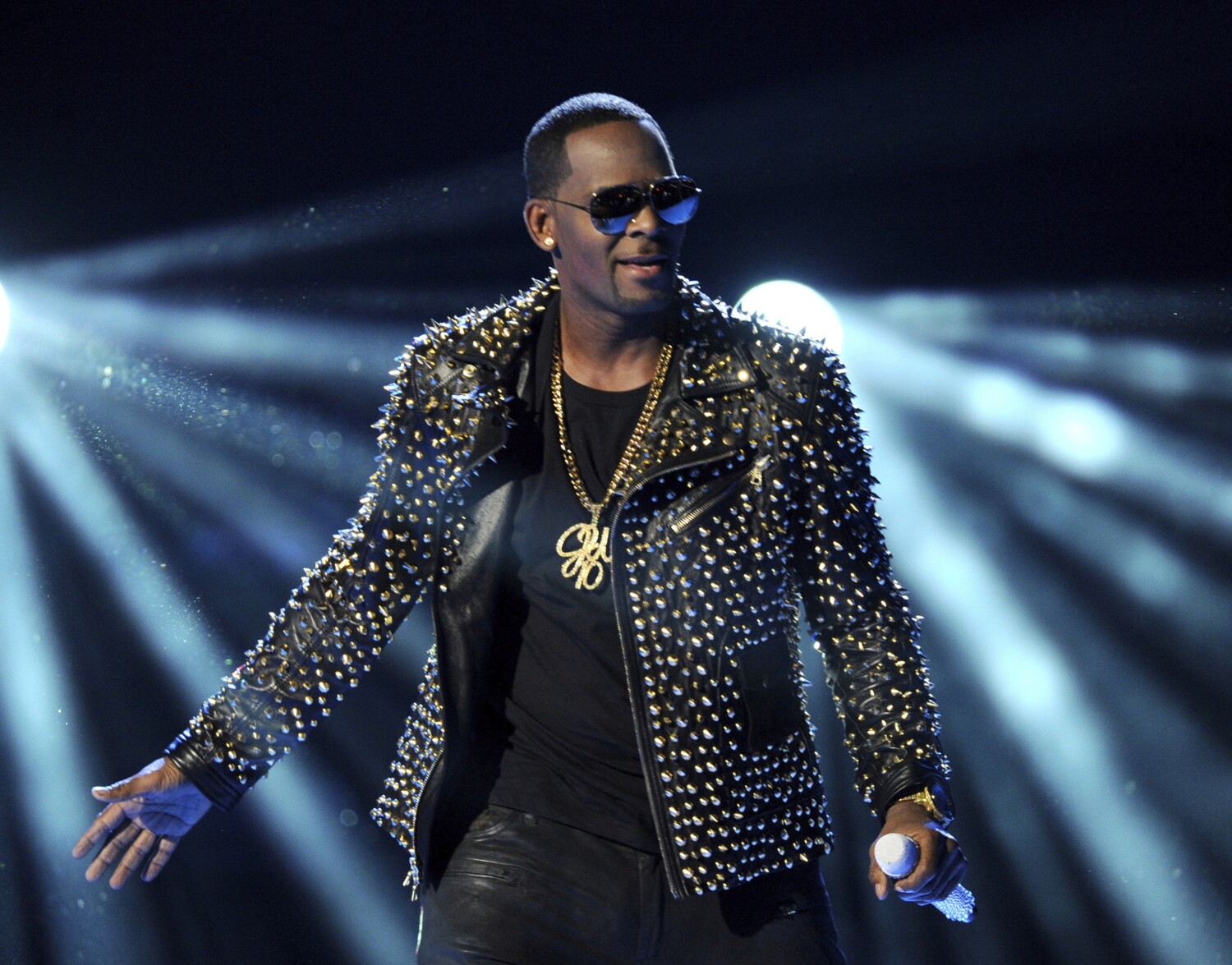Victims directly address convicted musician R. Kelly during Brooklyn sentencing hearing

This story is developing and will be updated.
R. Kelly again came face-to-face with his accusers Wednesday during a sentencing hearing in New York federal court as several of the women recounted the pain he inflicted on them, telling the R&B hitmaker that they are “no longer the preyed-on individuals we once were,” according to the Associated Press.
“You made me do things that broke my spirit. I literally wished I would die because of how low you made me feel. Do you remember that?” one woman asked the fallen R&B star in Brooklyn court as he awaited sentencing in his federal sex trafficking and racketeering case.
Another victim said the Grammy Award winner, known for the 1993 hit “I Believe I Can Fly” and the raunchy musical odyssey “Trapped in the Closet,” manipulated fans into believing that he was someone other than the man the jury saw. Another said the verdict had restored her faith in the justice system.
The emotional sentencing hearing, which began around 7:30 a.m. Pacific and which has taken several breaks since, comes more than nine months after a federal jury in New York convicted the “I’m a Flirt” singer on nine counts of sex trafficking and racketeering to recruit women, as well as underage girls and boys, for sex.
Kelly, 55, whose real name is Robert Sylvester Kelly, has been held at the Metropolitan Detention Center in Brooklyn since the September verdict. The musician kept his hands folded and looked down as he listened to the witnesses, AP reported.
Earlier this month, prosecutors asked that Kelly spend “an excess of 25 years” behind bars, arguing that he is a danger to the public. Prosecutors also pointed to his lack of remorse for exploiting his fame to lure victims.
Kelly’s defense team pushed for the minimum sentence of 10 years or less, arguing that Kelly “experienced a traumatic childhood involving severe, prolonged childhood sexual abuse, poverty, and violence” and that his victimization continued into adulthood, where he was “repeatedly defrauded and financially abused, often by the people he paid to protect him” because of his literacy deficiencies.
After the long-awaited six-week trial last summer, a federal jury concluded that the Grammy winner used his celebrity status to procure, then mentally and sexually abuse, girls and young women during a 25-year period. The operation — involving a network of managers and aides who helped Kelly meet girls, and keep them obedient and quiet — amounted to a criminal enterprise (thus the racketeering charge). They also found that Kelly violated the anti-sex trafficking law known as the Mann Act.
Kelly’s sentencing had been postponed from May because a pre-sentencing report had not been filed, according to CBS. At the time, the judge also denied his attorney’s request to postpone sentencing until after the musician’s trial this August in a separate federal case in his hometown of Chicago.
Sexual misconduct allegations have dogged the hitmaker for decades but were repeatedly sidelined as he built a musical empire on his sexually explicit songwriting, with titles such as “Ignition,” “Bump N’ Grind” and “Your Body’s Callin’.” The singer-producer long seemed invincible, evading criminal responsibility despite dire accusations involving young women and children — even those stemming from his marriage to musical protégé Aaliyah Haughton, who died in a 2001 plane crash at age 22. (According to court testimony, Kelly abused her when she was 13 or 14 and falsified documents so he could marry her when she was 15 and he was 27.)
But the allegations caught up with the singer in 2018 following the #MeToo movement.
Widespread public condemnation came in tandem with the Emmy-nominated Lifetime docuseries “Surviving R. Kelly,” which allowed several of his accusers to share their stories. The saga, and its 2020 follow-up, “The Reckoning,” gave rise to the viral #MuteRKelly campaign that began to interfere with the musician’s ability to perform onstage.
In early 2019, RCA Records dropped Kelly, and within weeks, a grand jury in Illinois’ Cook County had indicted him on 10 counts of aggravated criminal sexual abuse. Nine of those counts identified victims as being 13 to 16 years old. Then, Kelly sat down — and stood up — during his infamous CBS interview with Gayle King, during which he grew agitated over questions about his legal troubles.
Kelly’s trial was repeatedly delayed by the COVID-19 pandemic but finally took place last August. Kelly’s lawyers argued that his own history as an abused child might have led to his adult “hypersexuality.”
Kelly’s upcoming trial in Chicago relates to federal charges of child pornography and obstruction of justice stemming from accusations that he videotaped himself having sex with underage girls, paid hush money and intimidated witnesses to cover up his alleged crimes, as well as multiple sexual assault and sexual abuse charges in Cook County.
Experts have said separate state charges could potentially be dropped if the singer receives a lengthy prison sentence in New York. However, it is unlikely that federal charges in Chicago will be dropped.
The singer is also facing a solicitation charge in Minnesota; he’s accused of offering a 17-year-old girl $200 to take off her clothes and dance in 2001.
For all the latest Entertainment News Click Here
For the latest news and updates, follow us on Google News.
